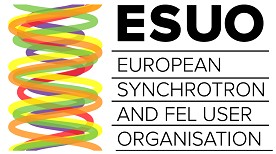It is great to report that the NEPHEWS project is well underway and that the next phase of supports for early stage researchers (ESR) and particularly those new to the fields of synchrotron (SR), free-electron laser (FEL) and neutron (N) science, are now open for application until November 15th. These announcements are at the NEPHEWS website at www.beamtime.eu and these new ESR supports are in addition to the previously announced Twinning activities at the large scale research infrastructures (RI) that are participating in NEPHEWS. This is in addition to the many RI within NEPHEWS that are offering supported access by the Trans-national Access (TNA) funds available for research groups being awarded beamtime within NEPHEWS.
These community building ESR and Twinning activities include those RI that are not otherwise offering TNA directly. Regarding the ESRs programme, from the NEPHEWS website:
It is important for science community future that the finest talent is developed within the research system. In the NEPHEWS project, consortium partners will offer support to 24 young scientists.
Early Stage Researchers (ESR) will make working visits that will allow them to get to know the Research Infrastructures (RIs) from many perspectives. Participants accepted into the ESR Programme will get a practical short-term (up to 1 week) internship at a Synchrotron (SR), Free Electron Laser (FEL) or Neutron (N) facilities, gathering knowledge of different research techniques and on their applicability to different research fields, getting first practical experiences and gaining a better understanding of access policy, offer and other aspects of the facilities’ activities, such as technology transfer or innovation stimulation through individualized programmes.
These funded visits for ESRs at stages denoted as R1 and R2. ESR refers to individuals who are in the early stages of their research career, generally before they achieve full independence in their field.
NEPHEWS will support:
- R1: First Stage Researcher (up to the point of PhD),
- R2: Recognised Researcher (PhD holders or equivalent who are not yet fully independent).
Particular priority in these opportunities is firstly given to those researchers whose affiliation and nationality comes from one of the 8 selected countries within NEPHEWS (Estonia, Finland, Greece, Poland, Portugal, Romania, Serbia, Ukraine), but after that support will be offered to users whose nationality is from other Widening countries or in countries without RI.
Please circulate in your national communities about the ESR opportunities, the Twinning opportunities as well as the TNA !
The users of all Photon and Neutron (PaN) facilities in Europe are currently required by the European Union and many national funding agencies to implement FAIR -Findable, Accessible, Interoperable and Reusable- data principles for all experiments realized on the basis of public funding. The implementation of the FAIR principles constitutes a major challenge for both the PaN facilities and also for the user communities and needs to be solved in a common approach with a shared accountability. The process of FAIR implementation in the PaN facilities is guided by LEAPS and LENS. In Germany the user representatives of KFS (Komitee Forschung mit Synchrotronstrahlung) and KFN (Komitee Forschung mit Neutronen) initiated the DAta from PHoton and Neutron Experiments –DAPHNE4NFDI– project in which users and facilities are collaborating to make data FAIR and is building upon the groundbreaking work of the PaNOSC and ExPaNDS projects.
The European users’ organizations ENSA and ESUO in collaboration with the DAPHNE4NFDI consortium are developing a “white paper” addressing the topics and implications of FAIR data and Open Data policy for the European PaN community. This is occurring via joint meeting at the Paul Scherrer Institute in Switzerland from November 13th to November 15th, 2023.
 The purpose of the first part of this meeting is to involve the users via their national representatives in ENSA and ESUO to get as wide as possible an input and discuss the issues from differing national user communities’ perspectives.
The purpose of the first part of this meeting is to involve the users via their national representatives in ENSA and ESUO to get as wide as possible an input and discuss the issues from differing national user communities’ perspectives.
The second part of the meeting will consist of firstly a joint meeting of the two European Users organizations to exchange on topics related to the planning of the role and tasks of the organizations under NEPHEWS, a recently granted Horizon Europe (HE) project for Transnational Access (TNA) to the facilities and for twinning activities mainly for researchers from the Widening countries.
Furthermore, ESUO will hold its 19th General Assembly meeting on the 15th of November (the detailed agenda of this part of the meeting will be communicated to the ESUO national delegates in due time).
We are all looking forward to participating with ESUO and ENSA delegates in these objectives together with DAPHNE4NFDI personnel at PSI. See you there!
